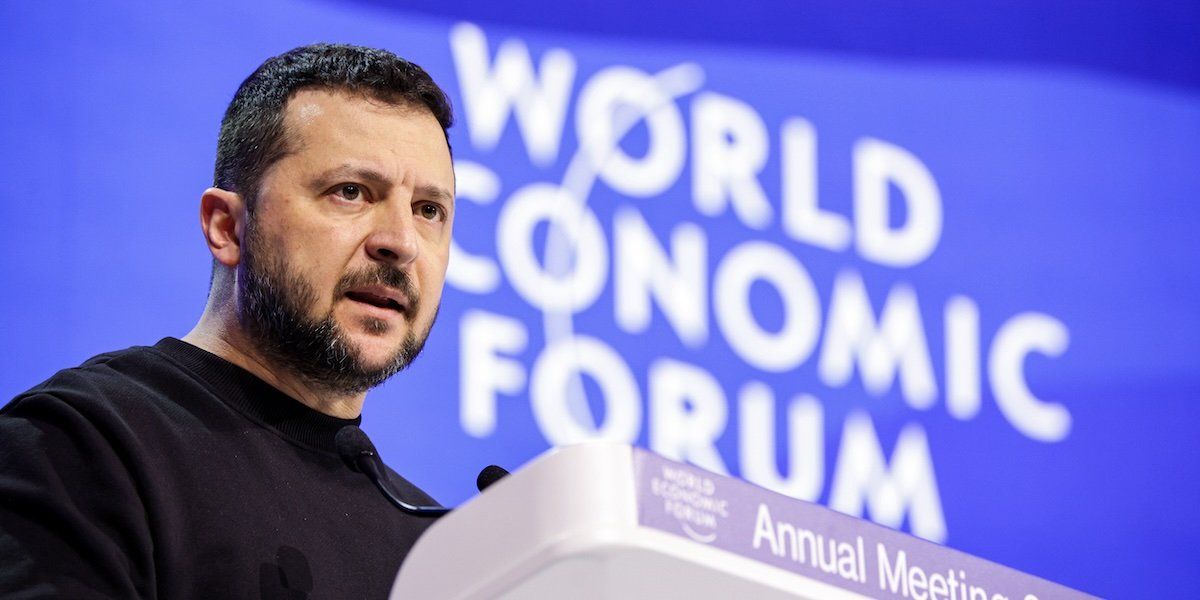Ukrainian President Volodymyr Zelensky is in many ways battling two wars at once – one against Russian invaders, and another to maintain financial and military support from Western allies. Lately, he’s been facing a deadlock in both.
On Tuesday, Zelensky spoke in front of the World Economic Forum in Davos, Switzerland, and implored the West to ramp up aid. The Ukrainian leader presented the war as a threat not just to his country but to Europe as well, making the case that strengthening Ukraine’s economy would strengthen European security.
"If anyone thinks this is only about Ukraine, they’re fundamentally mistaken,” Zelensky said.
Frozen conflict, frozen funding. The frontline in the war has barely moved in recent months, as Ukraine creeps toward the second anniversary of Russia’s invasion. But Zelensky warned that Russian President Vladimir Putin will keep wanting more. “Putin is a predator who is not satisfied with frozen products,” Zelensky said
Zelensky’s address came as internal debates in the US and EU continue to delay new aid packages to Kyiv, which has been heavily reliant on outside assistance. But the Ukrainian leader also noted that he’d seen “positive signals” that more EU funding would come soon.
The EU has moved to send €50 billion in economic assistance to Ukraine but has faced a roadblock in the form of Hungarian Prime Minister Viktor Orbán. Still, EU leaders have signaled they might take steps to bypass Hungary’s veto when the bloc meets for a summit on Feb. 1.
Meanwhile, there seems to be less hope that the US Congress, which is currently working to avoid a partial government shutdown and has been divided over issues like border security, will be sending more aid to Ukraine anytime soon. But US Secretary of State Antony Blinken on Tuesday told Zelensky in Davos that the Biden administration is “determined to sustain [its] support for Ukraine and [is] working very closely with Congress in order to work to do that.”
Macron to the rescue. As Ukraine anxiously awaits large aid packages from the EU and US, French President Emmanuel Macron on Tuesday said that Paris in the near future would provide Ukraine with 40 long-range cruise missiles and hundreds of bombs.
